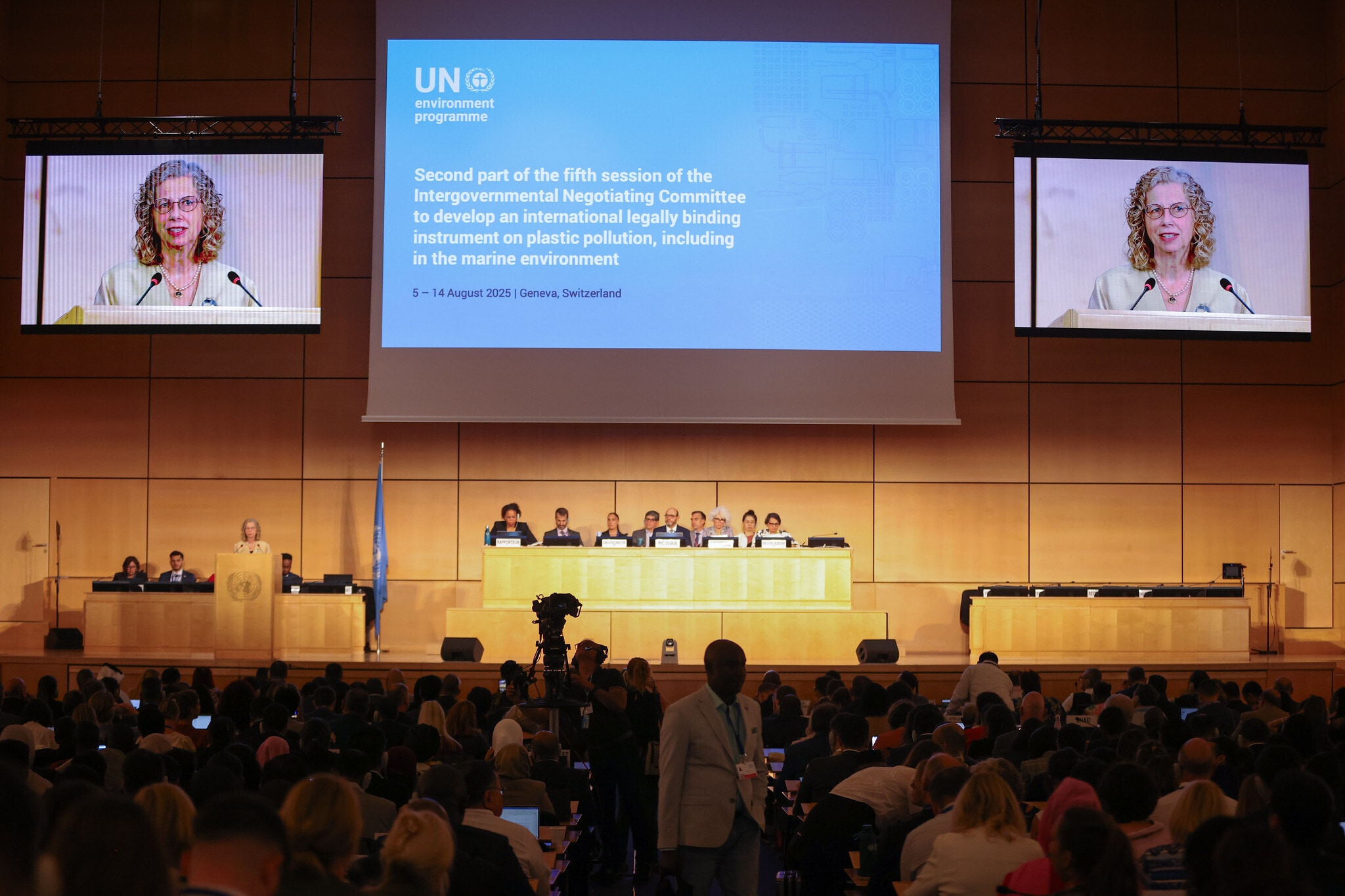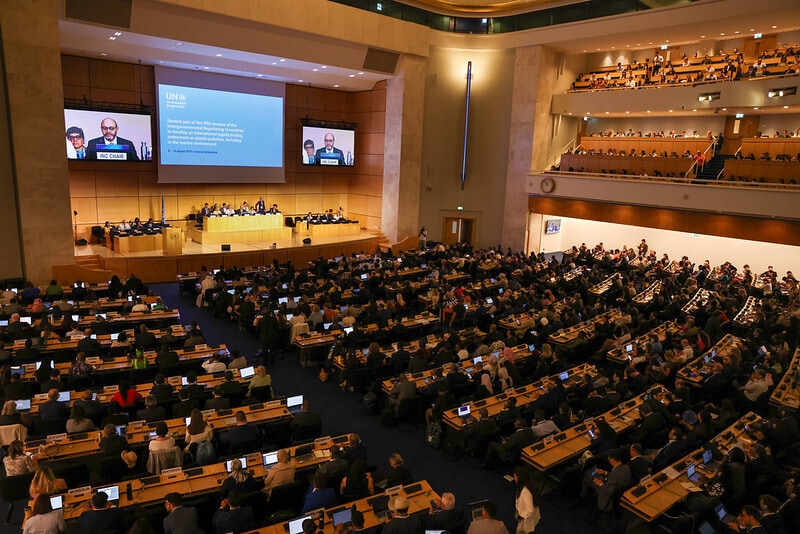Why more cities must take climate change action

Stay up to date:
Future of the Environment
Cities and companies have been pledging action on climate change at the Lima UNFCCC conference, COP20. Feelings amongst delegates are optimistic for a legally-binding global deal next year in Paris. But on present course it will not deliver the outcomes that science says the world needs to limit global warming to within 2°C.
With 319 cities having pledged climate action, and with many city leaders being at odds with national leaders on what to do about climate change and whether it even matters, it is incumbent upon small cities to take unilateral action themselves.
Amongst delegates at Lima, 913 actions have so far been logged, with emissions reduction being the dominant theme, featuring amongst 679 of them. Urban environment, of interest to readers of this website, features second with 455 actions related to this theme.
And, in correct order of priority according to cost-effectiveness, energy efficiency has almost doubled the number of actions than those connected to renewable energy (402 compared to 242).
The figures come from the Non-state Actor Zone for Climate Action website, which documents that 319 cities have so far pledged action, plus 69 subnational regions and 261 companies.
Map of cities pledging climate action at COP20:

But if you zoom in to the map available on the website, you can see where most of the cities are located and where the significant gaps lie. In East Asia for example 73 of these cities are in Japanand six in South Korea. Just three are in China.
Map of East Asian cities pledging climate action at COP20:

Over in the Americas, 75 cities in the United States have declared that they will take action. So between them these three countries make up almost half of the total.
Climate lackey Canada sees 21 cities declaring, while over in the UK only London has declared out of 59 in Europe as a whole.
The UK is a leading nation on campaigning for action on climate change whereas Canada, together with Australia (one city: Sydney), are notorious amongst the developed countries for their cavalier attitude in negotiations on climate change action at national level.
The fact that 21 cities in Canada disagree with the national government shows the level of conflict on the issue within that nation.
On the other side of the world in Australia, we know that Adelaide is keen on taking action, it just hasn’t declared, but you would think that more Australian cities would do so since some are known to disagree with the national government.
In south America, six Brazilian cities have declared plus four Colombian cities. There are 10 in Mexico.
UITP Declaration on Climate Leadership
There are a couple of cooperative initiatives on the urban environment, notably a public transport declaration on climate leadership which pledges to double the share of public transport by 2025, and develop low emission transport. It reckons that achieving this would prevent the emission of half a billion tonnes of CO2 equivalent in the year 2025.
This would bring urban transport emissions in line with the objectives of the international climate negotiations despite the massive overall increase in the number of trips made in urban areas.
The main city participants are Copenhagen and Gothenberg, but it also includes companies from Germany and the United States of America plus organisations from all over the world.
The Urban Electric Mobility Initiative
The parallel Urban Electric Mobility Initiative intends to increase the sale of electric vehicles by 30% by 2030, which it claims will achieve a 30% reduction of CO2 emissions in urban areas by 2050 (although clearly this depends upon grid decarbonisation and so cannot be relied upon).
No cities are taking part in this initiative, which is dominated by companies such as General Motors, BMW, DHL, Siemens and Tesla plus related trade organisations and NGOs.
UEMI is an initiative of UN-Habitat and will feature in its Governing Council’s priorities next year and there will be a resolution on UEMI at the World Urban Forum in 2016; Habitat III (2016) will feature UEMI as a pillar of the new urban agenda.
City level
At the city level, most of the pledge actions seen at Lima involve either targets to reduce CO2 emissions by a certain date or targets to increase the share of renewable energy in the final energy mix for local government operations.
They pretty much all have different baselines and different target years and percentage levels, making them hard to compare with each other.
This reinforces the notion that global-level targets (whether legally binding or not) may not be so good as encouraging all players throughout the world to come up with their own plans.
The former chief UN climate negotiator Yvo de Boer is on record as saying that next year’s Paris meeting is unlikely to deliver a deal that is driven by science, being of the opinion that instead any agreement is more likely to resemble the Kyoto Protocol, with ad hoc national pledges (quoted in this week’s New Scientist magazine).
Nicholas Stern (author of the Stern Report) observed this week that a legally binding agreement might even be counter-productive by discouraging ambition.
This last year has been the hottest year on record, and the 10 warmest years on record all happened since 1998. Global warming is clearly going to accelerate. When you add up all of the pledges and actions around the world, we are still on track for up to 4.2°C of warming by 2100, which would be disastrous.
Even if governments follow through with the current pledges, the world will still warm by up to 3.1°C (source: climate action tracker).
Many more cities therefore need to step up, sidetrack their national governments, and take action on their own.
This article is published in collaboration with Sustainable Cities Collective. Publication does not imply endorsement of views by the World Economic Forum.
To keep up with Forum:Agenda subscribe to our weekly newsletter.
Author: David is Special Consultant of Sustainable Cities Collective.
Image: Clouds loom in the sky over Havana’s seafront boulevard “El Malecon” December 17, 2014. REUTERS.
Don't miss any update on this topic
Create a free account and access your personalized content collection with our latest publications and analyses.
License and Republishing
World Economic Forum articles may be republished in accordance with the Creative Commons Attribution-NonCommercial-NoDerivatives 4.0 International Public License, and in accordance with our Terms of Use.
The views expressed in this article are those of the author alone and not the World Economic Forum.
Forum Stories newsletter
Bringing you weekly curated insights and analysis on the global issues that matter.
More on Nature and BiodiversitySee all
Tom Crowfoot
August 20, 2025
Chavalit Frederick Tsao
August 19, 2025
Andrea Willige
August 15, 2025
Tom Crowfoot
August 14, 2025
James Balzer
August 14, 2025





